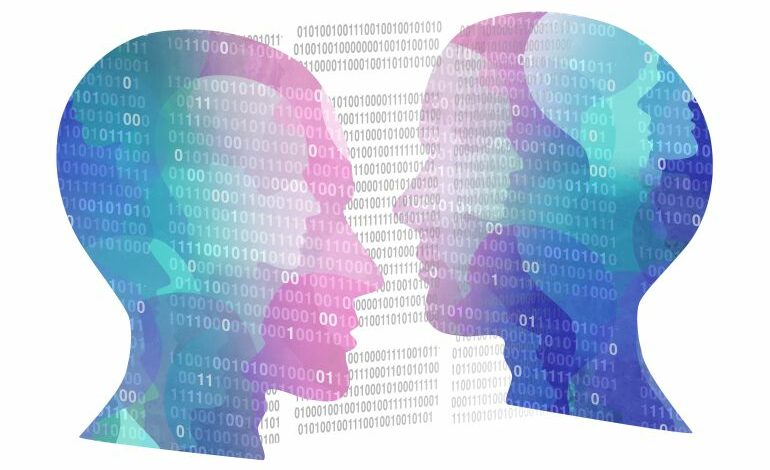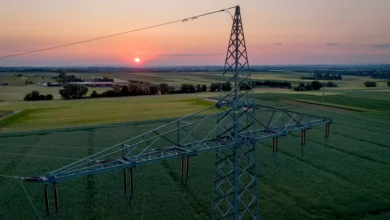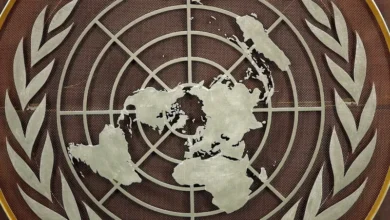What future for journalism in the age of AI?
Khaled Diab

Khaled Diab
The article you are about to read was written by a human.
This kind of disclaimer will become an everyday occurrence as chatbots, or large language models, infiltrate deeper into our media space. Doubts about the veracity of such disclaimers will also become commonplace.
With the leaps and bounds registered by machine learning and large language models over the past couple of years, it is becoming increasingly difficult to prove that a human is on the other side of a written or spoken communication.
How would I prove to you that these words were the product of human creativity and exertion? Perhaps through the originality of an idea or the novelty of a turn of phrase? Maybe by cracking a joke or employing irony? How about by expressing humane empathy as only a human could supposedly do?
Just how fast AI is progressing and how deeply it is infiltrating the media was put on stark display recently when Germany’s largest tabloid, Bild, announced that it was laying off a third of its staff and migrating their functions to machines. This follows BuzzFeed’s decision in January to use AI to generate quizzes and its quiet experimentation with AI-generated content ever since, especially SEO-primed travel guides.
“The functions of editor-in-chief, layout artist, proofreader, publisher and photo editor will no longer exist in the future as we know them today,” Bild’s editor-in-chief said in an email to staff.
“Artificial intelligence has the potential to make independent journalism better than it ever was – or simply replace it,” Mathias Doepfner, the CEO of Axel Springer, the owner of Bild, claimed in an internal letter when the idea was first floated in the spring.
This raises the pertinent question of what effect AI will have on the profession I love and how it will shape the future of journalism and the media.
First, it is important to acknowledge that artificial intelligence has been causing tectonic shifts in the media landscape for quite some years already. This has occurred both directly and indirectly.
One direct and largely positive way in which AI has affected the media is the emergence of Big Data journalism, which covers everything from crunching through the data in big leaks like the Panama Papers to examining the consequences of the climate crisis. Without powerful algorithms, journalists would have likely not been able to successfully comb through and decipher the mountains of data at their disposal to identify the telling statistical patterns and use these to tell compelling and useful stories. Media organisations also use AI for many back-office tasks, such as recommending content, transcribing interviews, subtitling videos, analysing audience interests, preferences and engagement, not to mention finding ways to boost their all-important SEO ranking. This last example hints at a wildly important way in which AI has indirectly influenced the media landscape: the role of search engines and social media channels as gatekeepers and curators of content, and the algorithms they employ to that end, which exercise a profound influence over the flow of revenue – or lack thereof – to media outlets.
But now, with the release of sophisticated large language models, we are on the cusp of AI moving out of the peripheries and penetrating the very heart and soul of journalism: content creation. Just as sophisticated language communication is central to our identity as humans, writing or speaking or storytelling is possibly the defining feature of being a journalist for many of us who took up the gauntlet.
I know it was my profound fascination with human stories that drew me to the profession almost a quarter of a century ago, and that keeps me clinging to it, despite having switched careers.
For a journalist, few things can beat the joy, nor match the frustration, of crafting a coherent and compelling story or narrative out of a raw jumble of ideas, words and information.
This may explain why, even though I’ve experimented with querying chatbots, I have not yet fallen to the temptation of using ChatGPT or other large language models to draft or edit text: it gives me too much professional satisfaction and personal pleasure to do it myself. I also don’t fully trust these tools to be able to do the job properly. Using a bot would be tantamount to a chef offering guests a microwave meal, a bespoke tailor selling off-the-rack suits or a cabinet maker assembling IKEA furniture.
Writing an article, like producing a video or radio report, may be an arduous and labour-intensive process, but it is also a highly rewarding one which, when done well, pays huge dividends both for the journalist and the audience.










